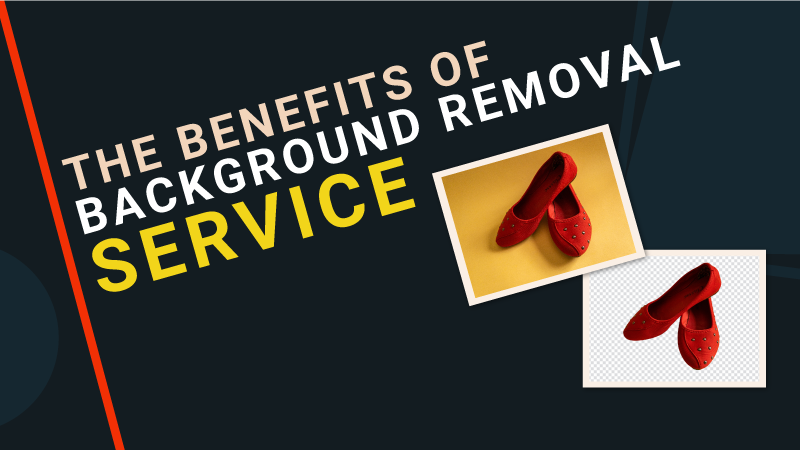In the digital age, high-quality visuals are crucial for businesses, photographers, and designers. Whether its for e-commerce, marketing, or professional photography, background removal plays a key role in enhancing images. Background removal allows objects to be isolated, making them more adaptable for different platforms and creative projects.
With the rapid advancement of image editing tools like Adobe Photoshop, GIMP, and AI-powered background removers, removing backgrounds has become more accessible and precise. This process is widely used in product photography, graphic design, and online stores to create clean, distraction-free images.

What is Background Removal?
Background removal is a photo editing technique used to delete or replace the background of an image while preserving the main subject. This process is particularly useful when an image has an undesirable or irrelevant background that needs to be eliminated.
The removed background can be replaced with a transparent, solid, or custom background based on the intended use. Background removal can be done manually using tools like the Pen Tool in Photoshop or automatically using AI-based software.
Methods of Background Removal
There are several methods for removing backgrounds, depending on the complexity of the image. Below are some of the most effective techniques:
1. Clipping Path Method (Pen Tool in Photoshop)
The Clipping Path method is a manual technique where an expert designer uses the Pen Tool in Adobe Photoshop to create a precise outline around the subject. Once the path is created, it is used to remove or separate the background.
✔ Best for: Images with sharp edges (e.g., electronic devices, clothing, furniture)
✔ Pros: High accuracy and clean cuts
✖ Cons: Time-consuming for complex images
2. Image Masking
Image masking is used for images with soft edges like hair, fur, and transparent objects (e.g., glass, water, smoke). There are different types of masking techniques:
-
Layer Masking – Uses a brush tool to reveal or hide parts of the image.
-
Alpha Channel Masking – Works with contrast to separate objects from backgrounds.
-
Hair and Fur Masking – Specifically used for retaining fine details in images with hair or fur.
✔ Best for: Images with complex edges (e.g., models, pets, transparent items)
✔ Pros: Maintains fine details
✖ Cons: Requires expertise to achieve high precision
3. AI-Powered Background Removal
Advanced AI-based tools like Remove.bg, Canva, Adobe Sensei, and Photoshop AI tools provide automatic background removal with a single click. These tools use machine learning to detect the subject and remove the background efficiently.
✔ Best for: Quick edits, social media graphics, e-commerce images
✔ Pros: Fast and easy to use
✖ Cons: Less accurate for complex images
4. Magic Wand and Quick Selection Tool
The Magic Wand Tool and Quick Selection Tool in Photoshop allow users to select and remove backgrounds based on color similarities. These tools work best with images that have a uniform background.
✔ Best for: Images with solid color backgrounds
✔ Pros: Quick and easy for simple backgrounds
✖ Cons: Less accurate for detailed images
5. Background Eraser Tool
The Background Eraser Tool in Photoshop helps remove backgrounds by detecting and deleting pixels of similar colors. It works well for semi-complex backgrounds but may not be ideal for intricate details like hair.
✔ Best for: Semi-complex backgrounds
✔ Pros: Effective for removing soft edges
✖ Cons: Requires manual adjustments for better accuracy
Why Background Removal is Important
Background removal is essential for various industries and creative projects. Here’s why it’s so important:
1. Enhances Product Presentation for E-Commerce
For online businesses, product images must be clean and professional. Removing distracting backgrounds ensures that customers focus on the product itself. Major platforms like Amazon, eBay, and Shopify require products to have a white or transparent background.
2. Creates Professional-Looking Images
Professional photographers and designers use background removal to refine their images, ensuring they look clean and polished.
3. Enables Transparent Backgrounds for Versatility
Transparent backgrounds allow images to be used across different platforms, such as advertisements, brochures, websites, and social media graphics.
4. Helps in Image Manipulation and Compositing
Graphic designers often need to merge multiple elements into a single composition. Background removal allows for seamless blending of objects into new designs.
5. Saves Time and Enhances Workflow
AI-powered background removers and professional editing services help businesses and designers save time by quickly delivering clean, ready-to-use images.
Industries That Benefit from Background Removal
Several industries rely on background removal to enhance their visuals. Here are some of the key sectors:
1. E-Commerce & Retail
Online retailers need high-quality images with clean backgrounds for better conversions and customer engagement.
2. Photography Studios
Professional photographers remove backgrounds to enhance portraits, wedding photos, and commercial shots.
3. Graphic Design & Advertising
Ad agencies and designers use background removal to create attention-grabbing posters, banners, and social media content.
4. Printing & Publishing
Magazines, newspapers, and catalog designers remove backgrounds for high-quality print materials.
5. Fashion & Apparel Industry
Fashion retailers use background removal to highlight clothing and accessories in online stores and catalogs.
